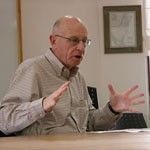By Ira Sharkansky, Ph.D

JERUSALEM — The protests are mounting in Israel. Street demonstrations, on the bridges over main highways, as well as known personalities commenting against the government and its recommendations. And major investors, threatening or actually taking money and themselves away from Israel.
All due to proposals, and actions, against the judiciary: giving more power to politicians to appoint Supreme Court Justices, and power to the Knesset to overrule Court decisions.
Plus criticism by key actors against the proposals of ministers.
Aryeh Deri, a minister? He has proposed rules of dress and conduct at the Western Wall. But that brought a rejoinder from Prime Minister Benyamin Netanyahu that the Kotel will remain as is, without the reforms of Deri.
And a proposal by Minister of Security Itamar Ben-Gvir, that major police actions will occur in Isawea, an Arab area of Jerusalem, linked to French Hill. A mentally disturbed resident of Isawea drove his car into a group of Haredim waiting at a bus stop alongside the neighborhood of Ramot, killing two youths and a young man, and injuring others. But soon after Ben-Gvir announced the movement of police, the police chief indicated that it would not happen, and that policy was not made on the street corner, but by the consideration of professionals. And that the event at issue was not one to respond with such an action as indicted by Ben-Gvir.
Mass demonstrations throughout the country as the Sabbath ended. Newspapers reported that this round of demonstrations reached 250,000 in Tel Aviv, Haifa, and elsewhere. Perhaps 100 gathered at the pedestrian bridge between Bnei Dror and Evan Yehuda, with a few from our Retirement Village joining them.
A poll showed that only a quarter of the population supports the proposals for judicial reform coming out of the government.
Both of these efforts have produced reservations or stronger criticisms from other members of the government coalition.
Most recently, President Isaac Herzog urged dialogue and compromise, perhaps to bring about some change, but to respect the Supreme Court and its vital role in protecting Israel as a Jewish and democratic state.
One of the immediate responses to Herzog came from Minister of Communications, Shlomo Karhi. He called the president prejudiced, and promised to continue with efforts to reform the judiciary with all merit and intensity.
 While contemplating the mess we’re close to and the madness we hear, I did one of my walks through the nearby Moshav of Bnei Dror. I came upon a happy scene. Someone had brought truckloads of snow from elsewhere to the Moshav. And the kids played. See it here.
While contemplating the mess we’re close to and the madness we hear, I did one of my walks through the nearby Moshav of Bnei Dror. I came upon a happy scene. Someone had brought truckloads of snow from elsewhere to the Moshav. And the kids played. See it here.